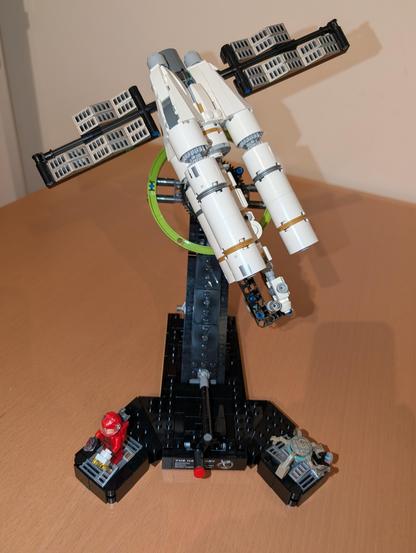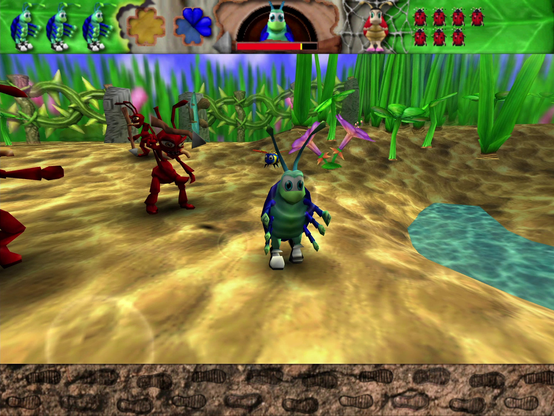Mastodon Digest
Keyboard Shortcuts
- J or ↓ - Next post
- K or ↑ - Previous post
- O or Enter - Open original
- H - Open home instance
Posts
Good day all! Upcoming episode of Fireside Fedi!
The #livestream will be on: stream.firesidefedi.live
Special Guest: @NorcalGma2@sfba.social
Retired rural grandma, caregiver, and dog mom to a sweet lab named Summer.Love to bake and gift to friends and family. Happy in my garden. Living a quiet life on the north coast of California. Mean comments aren't necessary or welcome. Please be kind.
So don't miss it!
It will happen on 09 March 2026 at 14:00 US Eastern Time ( UTC-5 )
If by any ungodly chance you miss the show:
#PeerTube ( #VOD ): tubefree.org/@firesidefedi
Calendar: freestreamers.btfree.org/eve...
#firesidefedi #fediverse #fedi #interview #freesoftware #opensource #userfreedom #freedom #resistance

"ai" ruined like 75% of having fun on the computer and these fucking dipshits are determined to piss on the remaining quarter
De Odido-hack treft miljoenen Nederlanders. Het gaat niet langer alleen over Odido en klant, maar ook over overheid en burger. Het gaat over onze veiligheid. Zeker voor mensen in kwetsbare posities waarvan niet alleen contactgegevens zijn gelekt , maar ook gegevens waardoor extra gevaar dreigt: https://digitaledollemina.nl/odido
Dit kabinet moet meer doen voor slachtoffers. De cybertelefoon moet zsm worden opgericht. Een loket waar iedereen telefonisch & online terecht kan voor info en vragen! #odido
Emulation is not a crime, it's civil disobedience
You've probably seen the raging debate among gaming enthusiasts: emulation – right or wrong?
#Emulation #SuperNintendo #RetroGaming #nintendo #BryantReview
REMINDER that @annaleen @drkarenlord and yours truly are going to be together doing events for WE WILL RISE AGAIN next month in Amsterdam, Frankfurt, and Frankfurt. I am so looking forward to it!!!
https://abc.nl/events/event-details/an-afternoon-with-malka-older-karen-lord-and-annalee-newitz/3576
https://buechergilde-frankfurt.buchhandlung.de/shop/magazine/143329/lesungen.html
Fake war footage is a problem as old as social media. AI has just supercharged it.
https://www.404media.co/x-will-stop-paying-people-for-sharing-unlabeled-ai-generated-war-footage/
And we're live with music from the faircamp universe at https://www.fro.at/fadimat105-march26/ \o/
Easy build, not very robust. That's to be expected, though. It's a thing to put on a shelf, not to play with.
Considering that, the mechanism it has is quite neat. There's a crank front and center, that both turns the model along the green circle thing you can see in the image, and / or extends and turns the middle passenger bit, mimicking the centrifuge mechanism the ship has in the book.

What if every phone could contribute to the #Fediverse, not just consume it?
Short-form video means heavy server-side transcoding for every clip. But your phone can handle it. Re-encode, resize, thumbnails, all done locally. Then push to your own #S3 or #Nextcloud.
No transcoding server. Just simple storage.
We can decentralize the compute, not just the network.
We're working on it
look, we all need another inkjet in the house like we need e.coli in our jello
but who could resist this tiny portable canon colour bubblejet 70.
i am finally realizing a dream that began when i saw it in Future Shop's printer aisle in 1995 for some outrageous price that my mother said "Absolutely not" to in a close and shut case.
$7 later, i now have my first perfectly cromulent colour printer. it even came with six 30 year old ink carts. the ink cart holder is a nice touch.
i had to do it. this was absolutely headed to e-waste if i hadn't rescued it. didn't think thing have a battery expansion unit you could buy separately?
When you understand what's going on with your health, you can make better decisions around your care and treatment.
👇 For more info on questions to ask at your next appointment see link below.
1/2
Gouache from the HEMA -- Hollandse Eenheidsprijzen Maatschappij -- from the eighties, reactived just now. I think it was a present from my parents when I was twelve or so, and found it just now in a cupboard and tested out the colors. One color cup has disappeared.

So #foss guy and gal.
If i need to hunt 20 minutes in your doc to find the freaking location of your config file ... that mean your doc is dogsh*t
happened both for caddy and traefik.
if you read their doc for the first time it's a freaking hell to find anything.
time for you to go to archlinux wiki and take note on how to make a doc
Anybody in the topic of age verification withe hash chains?
I ask myself… if there is a trusted entity … why not just sign a message with a nonce and the >18 years with a digital signature?
LGR has a video out covering my #PicoIDE project and the ZuluIDE. We are officially in a awesome new era of drive emulators!
https://youtu.be/td6QdOnMvnk
I'm happy to see new canadian social media like https://ehnow.ca/ and https://hey.cafe #canada
But so far, I still think #activitypub #mastodon and the #fediverse are the superior options.
Mostly because it's #decentralized and #federated
But most non-tech (normal) people don't understand those concepts.
They don't wanna deal with the fediverse because the learning curve is too high and they simply don't understand.
They just want something simple and that works.
A toot of mine was retooted by rob pike.
G’night girls and boys, I sure will have sweet dreams.
Edit to add for those not in the know: think Taylor Swift but UNIX.
My track selection from today's @fadimat #faircamp radio show:
"Offline" from https://ultramorbidi.net/0010/ by @Ultramorbidi
"Repair the darkness" from https://monarkie.music/repair-the-darkness/ by @monarkie
"When does it end" from https://2025.demo-fest.org/mx-hearteyes-im-probably-fine/ by Mx. Hearteyes
"Sans oriflamme" from https://bstn.nohost.me/faircamp/vosegus-lp/ by GOUFFRE @bstn
"Ψες είδα στο όνειρό μου" from the "Les Cartes Postales Chanteés" podcast https://cartespostaleschantees.rako.space/4-istanbul-turquie-avec-l-atelier-de-chant-d-istos/ by @manonpatate
Thanks, Danke et Merci to everyone for the lovely music <3 The full track list with all tracks (plus the english version for re-listening) will be published soon by @fadimat
Boosts
It turns out America's 3 branches of government are -
AIPAC
Pedophiles
Corporations
Como estará de fascistizada a política internacional que o Pedro Sánchez parece o Che Guevara
Install uBlock Origin. Now.
CBP Tapped Into the Online Advertising Ecosystem To Track Peoples’ Movements
Hi, I'm Ridley!
I think a lot about building healthier online communities. I'm interested in distributed computing, consent-focused design, privacy, and object capability programming.
I am currently working on a Dart-based implementation of https://ocapn.org which I hope will make it easier to create distributed and federated applications.
I am very grateful to have @nlnet sponsoring some of this work.
Hätte ich eine Firma die Wärmepumpen herstellt, ich würde ein Sondermodell "Habecks Heizungs Hammer" auf den Markt bringen.
A huge shout out to the 🇩🇰 #DanmarkSkifter campaign by @DanmarkSkifter against Big Tech, somewhat similar to the monthly 🇩🇪 #DigitalIndependenceDay #DIDay !
I meet more and more preparing for the big leap on the 20th of March. Perhaps we will a monthly day as well afterwards.
In the late 1990s, Pangea Software was a leading developer of Mac-exclusive games. Apple commissioned them to write demonstration code for the first release of the Quickdraw 3D graphics API, and their subsequent games Nanosaur, Bugdom, and Cro-Mag Rally were bundled with various generations of Apple's iMac and iBook computers.
Nearly 30 years later, Pangea kindly released the source to these games under a Creative Commons license, and Iliyas Jorio has been porting them to modern platforms (Mac, Windows, Linux) to keep the games alive.



In my online undergraduate P5.js course, students are about to begin the module on motion and physics, including a bit of physics simulation using Matter.js. It suddenly occurred to me that I had never seen anybody put together this particular demo before, and I realized it had to be done. Messy source code at https://editor.p5js.org/isohedral/full/vJa5RiZWs.
Social Web Working Group meetings begin
Hi there, let me introduce myself.
I'm machi, Japanese, 27 years old this year.
My English is not good and I use a translator to see here.
#Demigirl, #Quoiromantic, #Asexual.
Demigirl, but I hope you don't treat me like a girl.
I have a male partner and that's how I manage to stop my parents from interfering.
The Japanese community is suffocating and I came here to see the world.
My hobbies are drawing illustrations, writing novels, RPGs, and I also play board games sometimes.
I love manga, novels, and anime.
I'd be happy if you could make friends with me.
The orphan-crushing machine is just a tool. You can also use it to mulch puppies and purée kittens.
Why are you angry? You can use it for harmless tasks like making mashed potatoes. You eat mashed potatoes don't you? Yes, admittedly it leaks machine oil into the potatoes, but they're working on that. It leaks so much less oil than it did when you tried it three months ago. In a year from now it's going to be a Michelin-starred chef.
Well, that’s typical, gatekeeping by telling people they should have to learn to cook. You don’t think people who can’t cook deserve good food?
So what if the machine is powered by slave labor? That's innovation. You're just scared you're going to be one of them. Besides, it's inevitable. Nobody is going to crush orphans by hand any more. You're going to get left behind.
Oh, well there you go with your ridiculous purity culture again.
You're paying AI companies a monthly subscription fee to be fingerprinted like a parolee.
I got bored and ran uBlock across Claude, ChatGPT, and Gemini simultaneously.
Claude:
- Six parallel telemetry pipelines.
- A tracking GIF with 40 browser fingerprint data points baked into the URL, routed through a CDN proxy alias specifically to make it harder to block.
- Intercom running a persistent WebSocket whether you use it or not.
- Honeycomb distributed tracing on a chat UI because apparently your conversation needs the same observability stack as a payments microservice.
ChatGPT:
- proxies telemetry through their own backend to hide the Datadog destination URL from blockers.
- uBlock had to deploy scriptlet injection — actual JS injected into the page to intercept fetch() at the API level — because a network rule wasn't enough.
- Also ships your usage data to Google Analytics. OpenAI. To Google. You cannot make this up.
- Also runs a proof-of-work challenge before you're allowed to type anything.
Gemini:
- play.google.com/log getting hammered with your full session behavior, authenticated with three SAPISIDHASH token variants, piped directly into the Google identity supergraph that correlates everything you've ever done across every Google product since 2004.
- Also creates a Web App Activity record in your Google account timeline. Also has "ads" in one of the telemetry endpoint subdomains.
When uBlock blocks Gemini's requests, the JS exceptions bubble up and Gemini dutifully tries to POST the error details back to Google. uBlock blocks that too. The error messages contain the internal codenames for every upsell popup that failed to load.
KETCHUP_DISCOVERY_CARD.
MUSTARD_DISCOVERY_CARD.
MAYO_DISCOVERY_CARD.
Google named their subscription upsell popups after condiments and I found out because their error handler snitched on them.
All three of these products cost money.
One of them is also running ad infrastructure.
Touch grass. Install @ublockorigin








